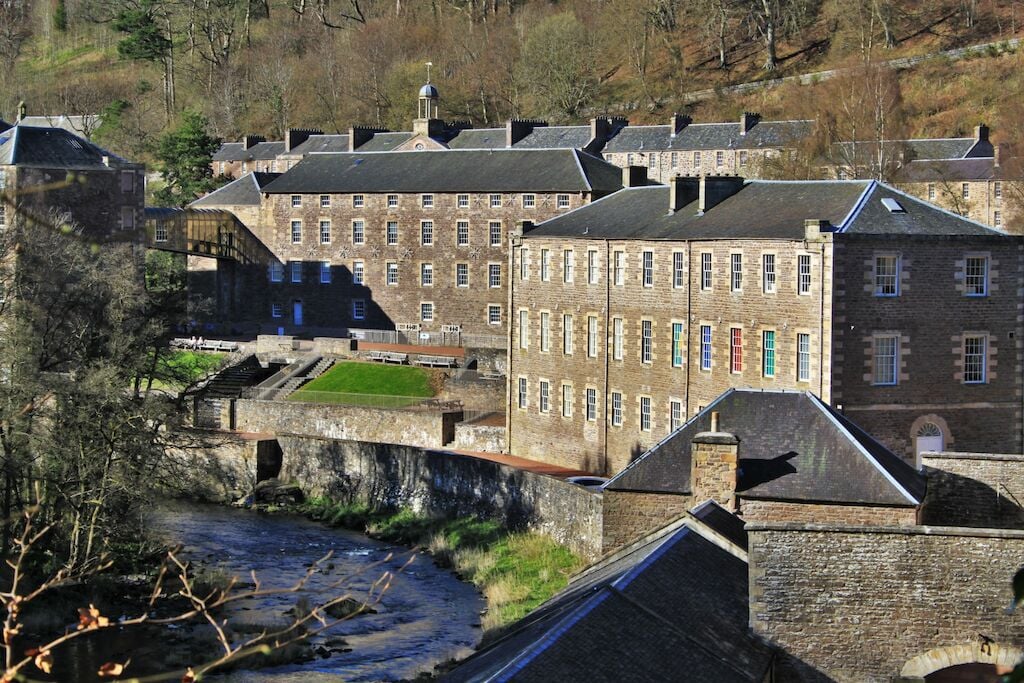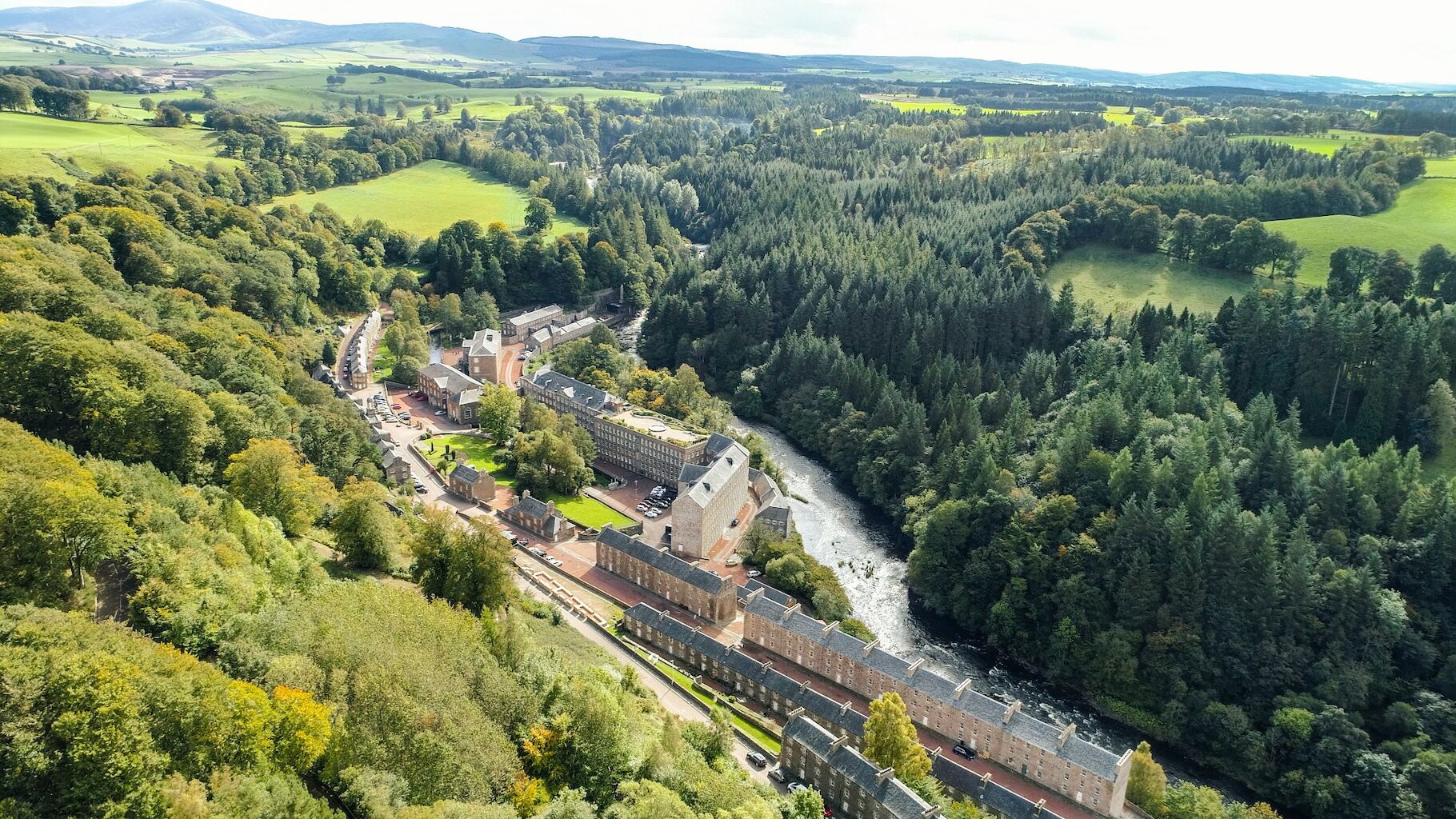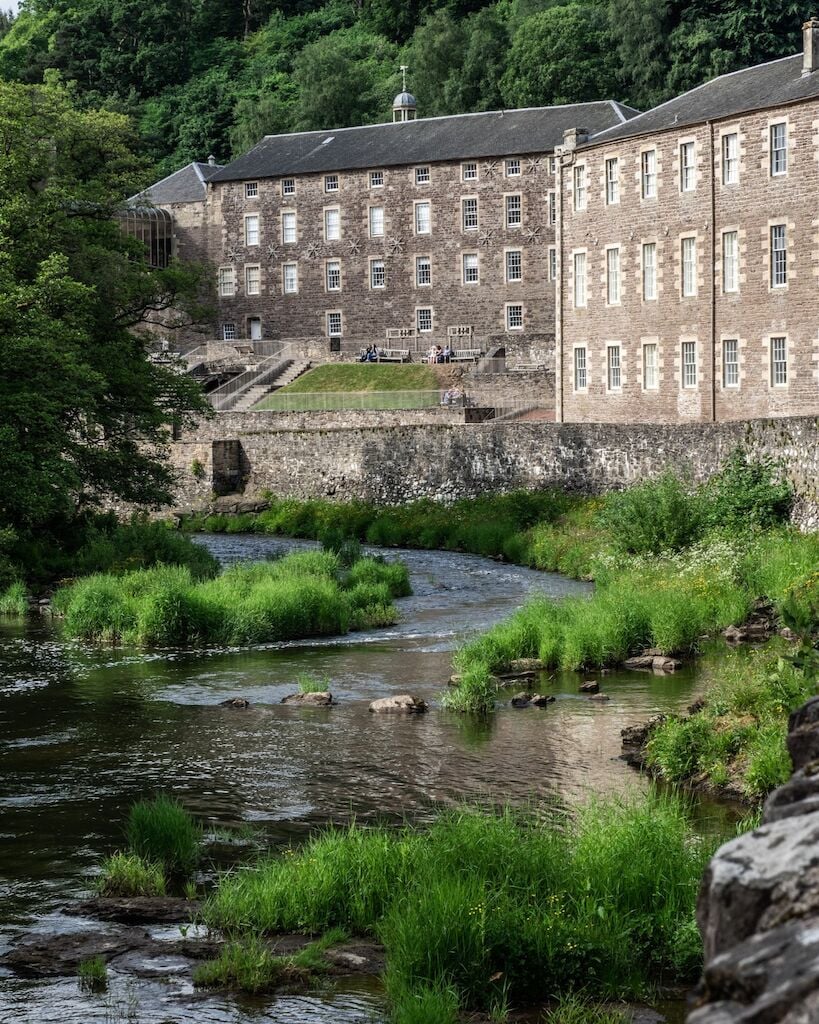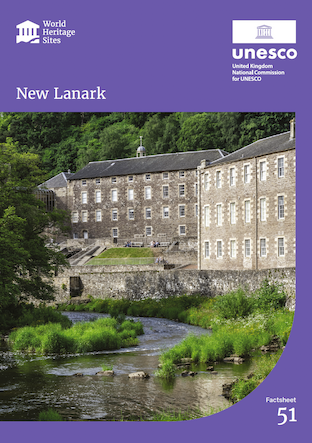New Lanark
New Lanark was a cotton mill founded 1785 by David Dale, a Glasgow banker and entrepreneur, and Richard Arkwright, the inventor and pioneer of industrial cotton spinning. It later became famous for the reforms of its owner Robert Owen. The mill was in operation for two centuries until 1968 and at one time was thought to be the largest industrial facility in the world. It became a world-renowned blueprint for what could be the ideal working and living environment for workers and their families.
What makes this UNESCO Designation special?
The reforms of Robert Owen in the early 1800s set New Lanark apart from other cotton mills at this time. He instituted a range of radical reforms aimed at improving the efficiency of the business and the moral fibre of its inhabitants, paying for these reforms from the substantial profits of the cotton-spinning business - an early form of social enterprise.
Owen described his work at New Lanark as “the most important experiment for the happiness of the human race that has yet been instituted in any part of the world”.
Today, New Lanark welcomes over 300,000 visitors annually. It has a resident village community of 65 households, set within a National Nature Reserve with outstanding designed landscapes and woodlands. New Lanark village is home to an award-winning Visitor Centre offering a range of visitor attractions and a fantastic Learning & Outreach Programme, as well as the New Lanark Mill Hotel, Mill Shop and Café.
New Lanark produces its own electricity using a hydroelectric turbine dating from 1931. The turbine produces enough energy to power both the visitor areas on site and the hotel.











